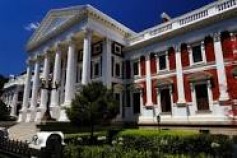R33,7 billion spent by the state on consultants in the last financial year
The State spent R33,7 billion on consultants in the past financial year, prompting Parliament's public accounts watchdog to warn of the emergence of a "parallel state." Where did the money go? On counting cushions, training in positive discipline and duties that public servants are supposed to perform themselves, writes Xolani Mbanjwa in City Press.
Those are just three examples of what government paid consultants to do.
In the past financial year, national and provincial government departments spent R33.7 billion on consultants, even though the country’s civil service is almost fully staffed.
Now Parliament’s public accounts watchdog committee Scopa is warning that an overreliance on consultants is leading to the formation of a “parallel state”.
It has even considered summoning consultants to Parliament to explain the state of departments’ finances, instead of speaking to departments’ ministers and directors-general.
Other examples of money paid to consultants – sometimes for jobs never done – include:
- The Gauteng health department paid several consultants R4.6 billion over three years, but in his latest report, the Auditor-General said he could not establish which companies had been hired or if they had done any work;
- An amount of R500 000 paid by the department of basic education to a consultancy to train staff in positive discipline and classroom management in nine problem schools;
- An amount of R68 million paid by the department of labour’s compensation fund to a consultant to do the work of a chief financial officer it had hired who could not do the job; and
- An amount of R14 million paid by the department of public works for a three-year contract to record and value curtains, scatter cushions, carpets and Persian rugs for regional government offices in Cape Town, Durban and Pretoria.
Scopa chairperson Themba Godi has accused senior government officials of using consultants to “cover” the fact that they cannot do their jobs.
“We had actually felt … that maybe we should call the consultants to come and account because it seems like they are the ones running the show (rather) than appointed officials,” he said.
In the last financial year, 2011/12, national and provincial government departments spent R33.7 billion on consultants – 3.8% of their combined R891 billion budget.
This is more than enough to pay for the controversial Gauteng freeway improvement project, which cost R32 billion and has resulted in e-tolls.
But the R33.7 billion excludes what municipalities spend. Last year alone, local councils spent R300 million on hiring audit firms to help prepare their financial statements. Despite this, only 13 out of 283 of the country’s municipalities received clean audits. An audit of the use of consultants by municipalities is under way by the office of the Auditor-General.
“It has been used to financially empower a few friends here and there and an ideology has set in that for anything and everything we must just get consultants … instead of building capacity in the public service,” said Godi.
He dismissed as “over-exaggerated” the claim of a shortage of skills and a high vacancy rate in the public service.
In August, only 10.8% of middle management and 16.6% of senior management posts were vacant while there was an overall vacancy rate of 9.1%.
The public service commission, a statutory body that monitors government performance, says government may be paying twice for jobs that public servants should be doing.
Its director-general, Professor Richard Levin, said a study was under way into the impact of outsourcing service delivery. He said the public service was 90% staffed.
Initial research showed that 23% of departments sampled so far could not provide their service-delivery models, which are used as a guide to hire consultants. The departments could not explain what the models entailed and were unaware of their service-delivery targets.
“The use of consultants without such guiding models will lead to concerns about the possible duplication of skills and effort, especially where these already exist in departments.”
Levin, a former director- general in the department of public service and administration, believes government can rid itself of some consultants and keep only those with technical expertise for use when needed.
“The reliance on consultants is a big concern,” he said, adding that most of them do not honour their contractual obligations to train civil servants to do the work they were hired to perform. But there is one skill the public service lacks: finance.
Professor Dieter Gloeck, president of the SA Institute of Government Auditors, said many civil servants with finance training leave to return as consultants at a higher price.
In a position paper on the shortage of those skills in government, Gloeck said: “Given the fact that in the public sector financial knowledge and skills are scarce, the private sector is constantly on the hunt to employ people with public sector skills who will (enable them to) offer consulting services.
“A large percentage of (people who) have been trained in the public sector are leaving only to return their services to the public sector at expensive consultation-fee scales,” he added.
View at source.
















